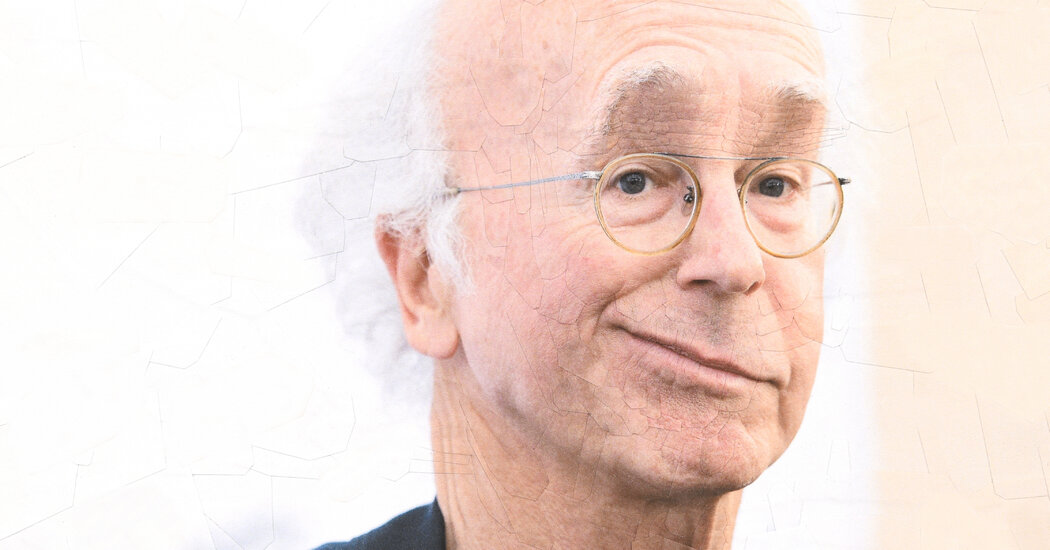At the end of his 1999 HBO special, “Larry David: Curb Your Enthusiasm,” David wraps up a stand-up comedy set by telling his audience he has no more material for them. “This is what happens when you run out of nothing,” he says.
The joke refers to the famous description of “Seinfeld,” the sitcom that David created with Jerry Seinfeld, as “a show about nothing.” It is also a bit of a lie.
. . .
On “Curb,” David starred as “Larry David,” simultaneously the world’s most comfortable and uncomfortable man, registering his complaints to a cast of sounding boards: Cheryl (Cheryl Hines), his wife and later ex-wife; Jeff (Jeff Garlin), his manager; Leon (J.B. Smoove), his permanent houseguest, who joined the series in mid-run and filled the chaos-demon role that Kramer (Michael Richards) did on “Seinfeld.”
You might say that “Curb” was simply a premium-cable version of “Seinfeld,” with improvised dialogue. The material was filthier — recall the obituary typo that rendered “beloved aunt” into a phrase unairable in NBC prime time — the milieu more autobiographical and more overtly Jewish. (“Seinfeld” made its cranky Larry David alter ego, Jason Alexander’s George Costanza, into a crypto-Jew with an Italian surname.) The affluent characters of “Curb” spent as much time eating breakfast and contemplating sandwiches as the “Seinfeld” gang did. They just ran up a higher tab.
But “Curb” was its own thing, for its own time. Much as “Seinfeld” captured the ironic vibes of the end of the millennium, “Curb” was the signature comedy for the agitated, antagonistic era of the 21st-century social internet.


Where tf did Getty get that image?